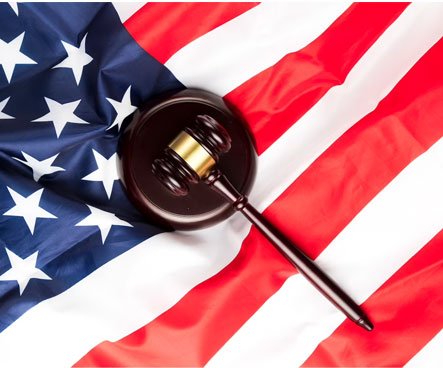Atlanta Securities and Insider Trading Fraud Lawyer

Atlanta Securities and Insider Trading Fraud Attorney
Facing an accusation of a white collar crime is very serious. These unlawful offenses, although non-violent, are still criminal violations that pose significant penalties if you’re convicted. Unfortunately, these weighty allegations can even tarnish your reputation and professional opportunities. If you have been charged with securities fraud or insider trading, an experienced Atlanta securities & insider trading fraud lawyer can fight for your rights.
The qualified, professional team at The Law Office of Lawrence J. Zimmerman is dedicated to representing clients who have been accused of significant state crimes and federal felonies. Our office has successfully managed cases involving charges of wire fraud, employee theft (embezzlement), bribery and obstruction, tax evasion, money laundering, drug trafficking, and other white collar crimes. Don’t wait to see how we can represent you today.
What Is Securities Fraud?
Securities fraud is a subcategory under federal white collar crimes that encompasses a wide range of fraudulent activities. Securities fraud specifically refers to any unlawful act or conduct meant to deceive investors, leading them to make business decisions based on false or manipulated financial information.
The Securities Exchange Act of 1934 and further statutes enforced by the Securities and Exchange Commission (SEC) prohibit the use of any manipulative or deceptive devices, schemes, or other artifice during the trading of a company’s securities that are meant to defraud. This includes conveying any false assertions or omitting to disclose any truthful statements regarding a material fact with the intention to deceitfully mislead.
It is illegal for any business to practice, enact, or carry out a course of action that acts or would act, as a form of fraud upon any party that is connected to the purchase or sale of a security. The Securities Act of 1993 requires that any investors of a publicly traded company must be provided with financial information about securities being proposed for public sale. Any deceit, misrepresentation, or other fraud is unlawful during the sale of securities.
The Different Types of Securities Fraud
The SEC and Department of Justice (DOJ) are responsible for investigating and charging any suspected violations of securities mandates. These government agencies most frequently allege securities fraud involving untrue statements or the omission of correct assertions concerning a security meant to influence an investor’s decision to buy or sell said security. These are some other types of securities fraud charges and schemes:
- Pyramid Schemes. Within this fraudulent business scheme, paying participants recruit more participants to invest in the program. The newest members’ payment is actually what pays the participant who recruited them instead of their return coming from a superior member.
In a pyramid scheme, there are no real investments being made, and participants are recruited based on the false promise of high returns that are in fact, reliant on new participants joining. - Ponzi Schemes. This scheme is similar to the pyramid in that investors are paid by the contributions of new investors. The difference is that earlier investors do not recruit new participants, and new investors are instead brought in by one person, such as a fund manager. This manager collects the investments from new participants to pay “returns” to the earlier investors.
- Churning. Churning entails a securities broker, who’s entrusted to make transactions with a customer’s account, excessively purchasing and selling securities in the customer’s account solely for the purpose of generating commissions for their personal benefit.
- Pump-and-Dump Schemes. This type of securities fraud involves buying stock of small companies at very low prices and subsequently generating buzz by spreading false information about the stock, creating an artificial increase in its price (the “pump”). The shares are then sold at an artificially high price, leaving deceived parties who bought stock to suffer significant losses (the “dump”).
Federal Fraud Laws Prohibiting Insider Trading
Insider trading is a type of securities fraud, outlined in SEC Rule 10b-5, as the use of any deceptive or manipulative means within transactions of securities. There are several forms of insider trading that may occur across various different circumstances. The most common instance of insider trading is when someone purchases or sells a security based on significant, relevant information they obtained that is not available to the public.
Any transactions made utilizing insider trading information is a breach of trust that is owed to the security’s issuer, the issuer’s shareholder, and any other person who serves as the source for the insider information. Anyone who committed a federal insider trading offense can be charged by the government. These charges in Atlanta can be based on the legal ideas of “misappropriation theory” and the “classical theory.”
According to the misappropriation theory, any individual who is not connected to a certain company or its employees is still able to commit and be charged with insider trading. However, they must have used material information that is not available to the public as the basis of their decision to purchase or sell federal securities.
Under the classical theory of insider trading, there is a fiduciary relationship between the individual accused of securities fraud and the party associated with the corporation who has an investment in said security. The accused must have either used material nonpublic information as the deciding factor in a securities trade or failed to disclose the obtained knowledge with their beneficiaries. Either scenario shows illegal action done for personal benefit.
Potential Defenses for Securities Fraud Charges
There are several defensive arguments that may be employed to dismiss or weaken the claims of fraudulent activity. Your securities fraud defense lawyer in Atlanta will know which defense strategies are strongest and most applicable, given your specific circumstances.
One defense would be to assert and establish that you did not intentionally or recklessly misrepresent or omit material information. The plaintiff must prove the accused’s state of mind during the illegal act; otherwise, the allegation is insufficient.
Your attorney may also prove that one of the inherent elements of insider trading was not present, rendering the charges non-applicable. Elements may include that:
- The trading of securities was not done while you were aware of significant nonpublic information.
- The supposed “nonpublic” information you had knowledge of was, in fact, publicly available.
- The “material” information would not have been truly significant in influencing investor decisions, etc.
FAQs About Atlanta, GA Securities and Insider Trading Fraud Law
Who Can Sue for Securities Fraud in Georgia?
In most cases of securities fraud, the SEC (Securities and Exchange Commission) pursues a criminal case as the plaintiff party claiming the presence of fraud. It is also possible for private plaintiffs to pursue legal action if they were directly harmed by the securities fraud or otherwise have a viable legal standing. If not directly affected, a private party may still choose to bring the violation to the attention of the SEC, who will investigate and handle the matter.
Is Misleading Investors a Crime?
Yes, federal law prohibits any intentional misrepresentations, omitted facts, manipulative devices, or other manners of fraud that do, or are meant to, mislead any investor involved in the buying or selling of a publicly traded company’s securities. Any instance of this type of misconduct is known as a securities fraud violation and is a federal felony.
Is Insider Trading a White Collar Crime in Georgia?
Yes, insider trading is a type of fraud regarding federal securities statutes. All fraudulent activity is unlawful, whether the accused party was intentionally or unknowingly committing fraud. White collar crimes are non-violent criminal offenses that entail unethical, illegal behavior or conduct where someone attempts to obtain monetary gain or power for their own benefit. This type of violation often involves corporate officers, employees, and politicians.
Can Someone Not Connected to the Company Be Charged With a White Collar Crime?
In cases of insider trading, an individual who does not have any connection or association with a certain corporation or organization can still be considered to have committed insider trading. If the person used material information that was not available to the public as the basis of their decision to buy or sell a federal security, they have committed insider trading and can be subsequently charged with a felony offense.
Can You Go to Jail for Misleading Investors in Georgia?
Violating any federal statutes that prohibit the deception of investors is a serious criminal offense. The exact penalties will vary depending on the felony charge and are determined by which securities statute was infringed. The length of prison sentences varies but will likely be two decades or longer. Additionally, there are mandatory fines that can reach millions of dollars. Simultaneous non-securities fraud charges may add to or influence the ultimate punishment.
Work With a Trustworthy, Experienced Securities Fraud Defense Attorney
If you are suspected of or charged with conducting insider trading or another form of securities fraud in Georgia, contact a qualified criminal defense attorney at The Law Office of Lawrence J. Zimmerman. Our legal team has extensive experience assisting clients who have faced allegations of federal crimes. We are prepared to represent and support you through the entirety of your securities fraud case.
Office Location
Meet With A Lawyer
Schedule A Consultation
Fields Marked With An “*” Are Required









